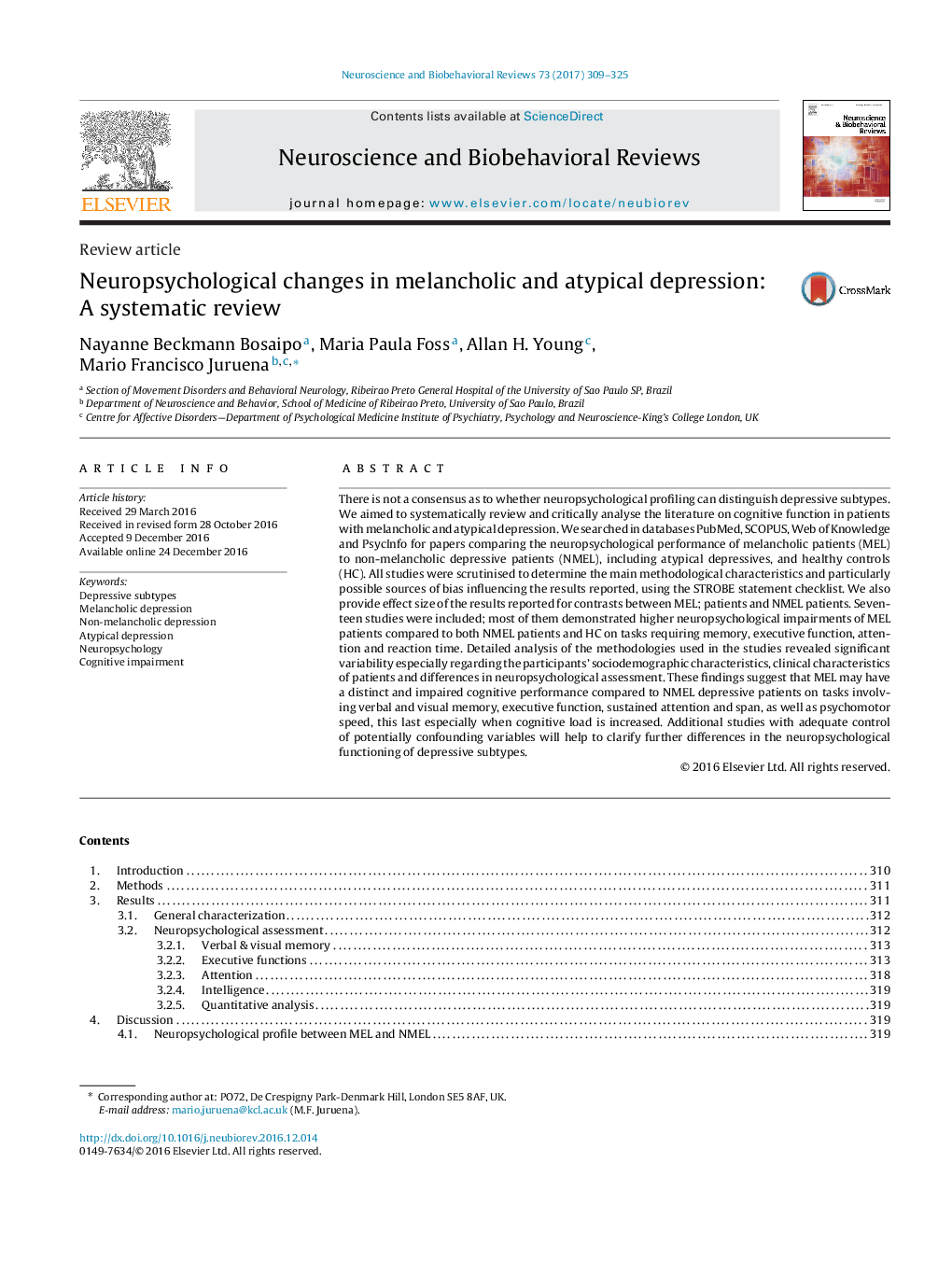| Article ID | Journal | Published Year | Pages | File Type |
|---|---|---|---|---|
| 5043543 | Neuroscience & Biobehavioral Reviews | 2017 | 17 Pages |
â¢Depressive subtype is an important factor influencing neuropsychological performance.â¢Different depressive subtype classification criteria may affect the outcome of cognitive assessments.â¢MEL patients have poorer performance than NMEL on verbal and visual memory, executive function, sustained attention, span and psychomotor speed.â¢Verbal fluency and psychomotor speed tasks differentiate atypical depression from melancholic subtype since MEL patients performed worst.â¢Compared to HC, MEL and atypical patients were impaired in several functions. But MEL patients show more extensive and greater impairments.
There is not a consensus as to whether neuropsychological profiling can distinguish depressive subtypes. We aimed to systematically review and critically analyse the literature on cognitive function in patients with melancholic and atypical depression. We searched in databases PubMed, SCOPUS, Web of Knowledge and PsycInfo for papers comparing the neuropsychological performance of melancholic patients (MEL) to non-melancholic depressive patients (NMEL), including atypical depressives, and healthy controls (HC). All studies were scrutinised to determine the main methodological characteristics and particularly possible sources of bias influencing the results reported, using the STROBE statement checklist. We also provide effect size of the results reported for contrasts between MEL; patients and NMEL patients. Seventeen studies were included; most of them demonstrated higher neuropsychological impairments of MEL patients compared to both NMEL patients and HC on tasks requiring memory, executive function, attention and reaction time. Detailed analysis of the methodologies used in the studies revealed significant variability especially regarding the participants' sociodemographic characteristics, clinical characteristics of patients and differences in neuropsychological assessment. These findings suggest that MEL may have a distinct and impaired cognitive performance compared to NMEL depressive patients on tasks involving verbal and visual memory, executive function, sustained attention and span, as well as psychomotor speed, this last especially when cognitive load is increased. Additional studies with adequate control of potentially confounding variables will help to clarify further differences in the neuropsychological functioning of depressive subtypes.
